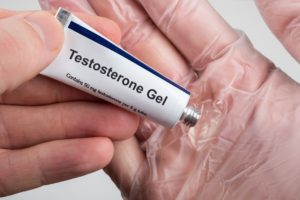
The study used an extensive database of electronic medical records of patients enrolled in primary care practices in the United Kingdom to create a cohort of 15,401 men, aged 45 years or older. All patients showed low testosterone levels (hypogonadism).
Results of the study confirmed that users of TRT had a 21 percent greater risk of cardiovascular events compared to those who did not receive TRT. This increased risk did decline after two years of TRT use, which researchers attribute to a phenomenon called “depletion of susceptibles.”
Christel Renoux was an author of the study. She spoke about the findings, saying, “Our findings show that the use of TRT was associated with an increased risk of stroke, TIAs, or cardiac arrest during the first two years of use.”
“There is limited evidence on the long-term clinical benefits of TRT to effectively treat the modestly declining levels of endogenous testosterone levels of aging but healthy men. We strongly recommend that clinicians proceed with caution when considering prescribing TRT and first discuss both the potential benefits and risks with patients.”
Although there have been many studies on TRT, this one was specifically aimed to look at men with low testosterone levels due to aging and not due to known secondary causes. It has been noted that while cases of hypogonadism have remained stable, prescriptions for TRT have increased considerably in the last 20 years. This is due to TRT being increasingly prescribed to relieve nonspecific symptoms of aging, such as fatigue and decline in sexual function.
Decreased Risk of Mortality
Researchers were surprised to find that current TRT use was associated with a decreased risk of overall mortality and past use with an increased risk. The team of researchers thought this could indicate some protective effect on mortality, but it could also be due to reverse causality with physicians discontinuing prescriptions of TRT in patients with deteriorating health.
Dr. Renoux advised, “Further large and methodologically sound observational studies should be conducted to reaffirm these results. Until such time, the potential cardiovascular risk of TRT should be weighed against the perceived and expected benefits among aging men, a perspective that aligns with warnings issued by health agencies.”
Although there are countless studies showing the benefits of testosterone treatment, this study does show the risks associated with TRT in the first two years of treatment. Be sure to discuss any treatments with your doctor to minimize these risks and enhance the benefits.